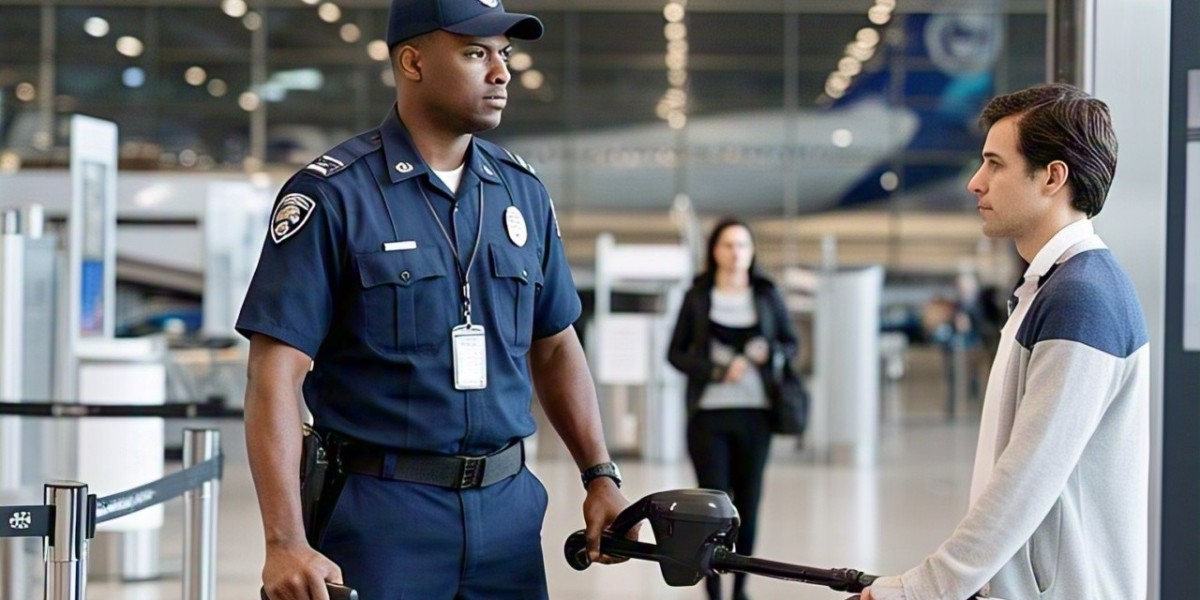The Critical Need for Airport Security
Airports are bustling hubs of international activity, where security is not just a necessity—it's a priority. With thousands of passengers traveling daily, securing airport facilities against potential threats is crucial. From handling emergencies to managing crowd control, airport security is the backbone of smooth operations. This growing dependence on well-trained professionals underlines the importance of security guards at every level of airport functioning. In a time when threats can be physical or digital, having skilled human oversight ensures that passengers feel safe and that airport protocols are properly enforced.
The Evolving Role of Airport Security Guards
Gone are the days when security guards only monitored entrances and exits. Today, their duties have expanded to include surveillance operations, behavioral analysis, and coordination with law enforcement. Their presence deters crime, assists in emergencies, and reassures travelers. They work closely with airline staff to ensure that both employees and passengers comply with all security measures. Whether screening vehicles entering the premises or guiding people during evacuations, security guards have become indispensable components of airport infrastructure.
Managing Access Control Points
One of the core duties of airport security guards is to monitor access control. Airports are divided into zones—some accessible to the public, others restricted to authorized personnel only. Guards ensure that no unauthorized individual breaches these areas. They verify identification, manage entry passes, and make real-time decisions in case of any suspicious activity. By doing so, they minimize risks and protect sensitive areas such as air traffic control rooms, baggage handling areas, and maintenance bays. Access control is often the first line of defense against threats.
Supporting Passenger Safety and Confidence
Passengers value visible security, especially in high-traffic locations like airports. A uniformed guard patrolling the terminal, monitoring surveillance screens, or assisting someone in distress promotes a sense of safety. Their approachable demeanor also makes them a go-to source of information for travelers. By addressing passenger queries and helping maintain public order, they indirectly improve the overall experience. When passengers feel secure, they’re more likely to remain calm and cooperative, contributing to smoother airport operations.
Emergency Response and Evacuation Protocols
When emergencies strike—be it a fire, suspicious package, or medical incident—security guards are among the first responders. Their training includes first aid, emergency evacuation, and crisis management. They help direct crowds to safety, support emergency personnel, and prevent chaos. Quick decision-making and a calm approach are essential in such scenarios. Their ability to assess threats, act promptly, and communicate effectively often makes a critical difference in minimizing harm and restoring order.
Surveillance and Monitoring Responsibilities
Security guards are responsible for watching over extensive areas through CCTV systems. This digital surveillance complements their physical presence, allowing them to detect irregular behavior, unattended luggage, or unauthorized entry. By identifying potential threats early, guards can take preemptive action before a situation escalates. Effective surveillance is a blend of technology and human insight. It enables guards to maintain vigilance across large spaces, such as parking lots, runways, and terminals—places that are otherwise difficult to monitor manually.
Collaborating with Law Enforcement
Airport security is a collaborative effort involving multiple stakeholders. Guards often coordinate with federal agencies, local police, and airline security teams to ensure comprehensive protection. This partnership allows for seamless communication during crises and routine operations. For instance, in cases of smuggling or contraband, security guards may detain suspects and transfer them to the authorities. Such cooperation strengthens the legal and logistical framework of airport safety. It ensures that incidents are handled professionally and swiftly.
Crowd Control During Peak Hours
Airports experience crowd surges during holidays, weekends, or weather-related delays. Managing large groups is a task that requires patience, foresight, and firm control—qualities that trained security guards possess. Their role includes directing queues, de-escalating heated situations, and ensuring that passengers move efficiently through security checks. Effective crowd management minimizes stress for travelers and reduces the chances of accidents or altercations. The presence of guards prevents bottlenecks and ensures that operations stay on schedule.
Role in Baggage and Cargo Security
Security guards also play a significant role in baggage and cargo screening. From detecting unusual packages to monitoring luggage movement, their duties extend beyond passenger areas. With the rise in cargo-related crimes, including smuggling and trafficking, extra scrutiny is vital. Guards use scanners, physical checks, and documentation verification to ensure that goods transported are safe and legal. By safeguarding cargo, they protect the interests of airlines, customers, and the broader economy.
Protecting VIPs and Staff
Airports often host dignitaries, celebrities, and corporate leaders who require personalized security. Security guards are tasked with offering close protection, escorting individuals discreetly, and ensuring that media or crowd interference is minimized. Their ability to manage such situations with professionalism reflects on the airport’s reputation. Moreover, airport staff also benefit from their presence, especially those working night shifts or in isolated areas. Guards deter harassment, violence, or misconduct against personnel.
Preventing Terrorism and Illegal Activities
Airport security guards are trained to identify signs of potential terrorism or criminal activity. This includes watching for nervous behavior, scanning for fake documents, or inspecting unattended luggage. By staying alert, guards form the first barrier against sabotage, hijacking attempts, and smuggling. Their vigilance protects lives and supports national security. The commitment to these responsibilities is one reason top firms like this professional airport security provider in Australia are in growing demand across the aviation sector.
Implementing Static Security for Critical Zones
Static security refers to fixed-position guarding—ideal for checkpoints, control towers, and gates. These guards focus on specific areas for prolonged durations, ensuring no unauthorized movement occurs. Their deep familiarity with their assigned zones makes them highly effective in threat detection. They often serve as the first response team during incidents in these areas. For sensitive locations like cargo storage or customs, having dedicated static security personnel ensures compliance with protocols and strengthens overall control.
Ensuring Compliance with Aviation Laws
Guards are trained in the latest aviation laws, airport regulations, and international safety standards. This allows them to enforce rules correctly, whether it's regarding prohibited items, travel documentation, or behavioral protocols. Their training is periodically updated to keep up with evolving threats and changes in legislation. This ongoing education empowers them to maintain legal and procedural compliance at all times.
Final Thoughts: A Backbone of Airport Safety
Security guards are more than uniformed personnel—they’re trained professionals who carry the weight of passenger safety and airport integrity on their shoulders. Their diverse responsibilities, from surveillance and crowd control to access regulation and emergency response, make them irreplaceable assets. As air travel continues to evolve and grow, so does the role of security guards. Their presence ensures that millions of passengers reach their destinations safely every year.
FAQs
1. Why are security guards important in airports?
They protect passengers, manage access, handle emergencies, and ensure compliance with aviation security laws.
2. Do airport security guards only patrol terminals?
No, they also monitor cargo areas, control towers, parking zones, and restricted staff-only locations.
3. How do guards help during emergencies?
They provide first response, assist in evacuations, call authorities, and maintain order to prevent panic.
4. What is static security at airports?
It involves stationing guards at critical points like checkpoints or restricted zones for continuous monitoring.
5. Do security guards collaborate with the police?
Yes, they often coordinate with law enforcement and airport security units to handle incidents effectively.
6. Are security guards trained in customer service?
Yes, many receive training in communication and conflict resolution to assist travelers and de-escalate situations.







